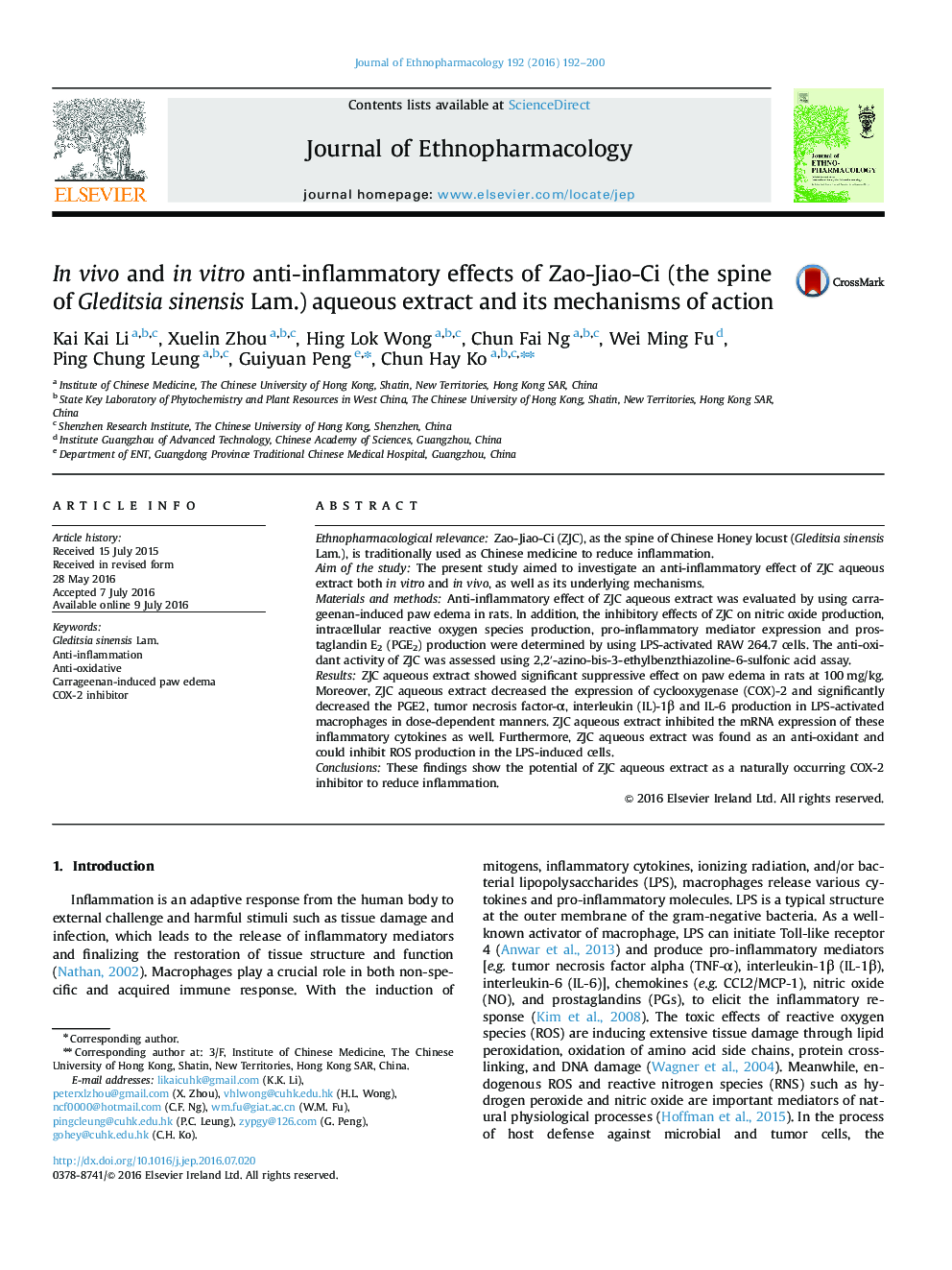| کد مقاله | کد نشریه | سال انتشار | مقاله انگلیسی | نسخه تمام متن |
|---|---|---|---|---|
| 2544546 | 1560370 | 2016 | 9 صفحه PDF | دانلود رایگان |

Ethnopharmacological relevanceZao-Jiao-Ci (ZJC), as the spine of Chinese Honey locust (Gleditsia sinensis Lam.), is traditionally used as Chinese medicine to reduce inflammation.Aim of the studyThe present study aimed to investigate an anti-inflammatory effect of ZJC aqueous extract both in vitro and in vivo, as well as its underlying mechanisms.Materials and methodsAnti-inflammatory effect of ZJC aqueous extract was evaluated by using carrageenan-induced paw edema in rats. In addition, the inhibitory effects of ZJC on nitric oxide production, intracellular reactive oxygen species production, pro-inflammatory mediator expression and prostaglandin E2 (PGE2) production were determined by using LPS-activated RAW 264.7 cells. The anti-oxidant activity of ZJC was assessed using 2,2′-azino-bis-3-ethylbenzthiazoline-6-sulfonic acid assay.ResultsZJC aqueous extract showed significant suppressive effect on paw edema in rats at 100 mg/kg. Moreover, ZJC aqueous extract decreased the expression of cyclooxygenase (COX)-2 and significantly decreased the PGE2, tumor necrosis factor-α, interleukin (IL)-1β and IL-6 production in LPS-activated macrophages in dose-dependent manners. ZJC aqueous extract inhibited the mRNA expression of these inflammatory cytokines as well. Furthermore, ZJC aqueous extract was found as an anti-oxidant and could inhibit ROS production in the LPS-induced cells.ConclusionsThese findings show the potential of ZJC aqueous extract as a naturally occurring COX-2 inhibitor to reduce inflammation.
Figure optionsDownload high-quality image (182 K)Download as PowerPoint slide
Journal: Journal of Ethnopharmacology - Volume 192, 4 November 2016, Pages 192–200